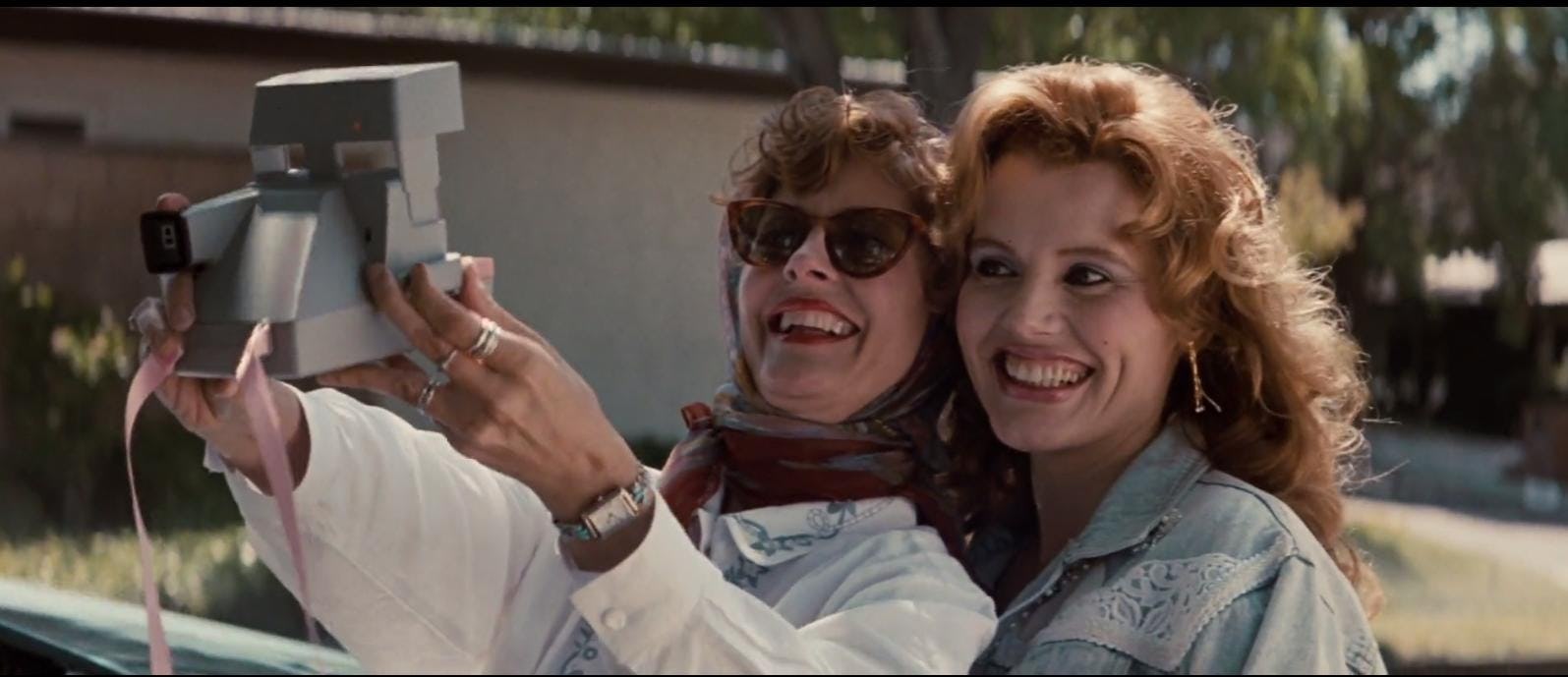 |
| but first let them take a selfie |
I thought the ending was really well done! The two friends deciding to commit suicide together could have easily been seen as a cheesy cop-out (no pun intended), but their decision made sense not because they had nothing to live for (they did - at least Louise loved someone), but perhaps because now that they have experienced the satisfaction of freedom and power, they sure aren't going to give it up. Their decision to end their lives together in the face of a squadron of police armed with machine guns is a big middle finger to the the institutions - of both of men and law enforcement - that have harmed them. Interestingly, the one cop who is sympathetic to the women and wants to help them is ignored by the rest of the police, as if the film is saying we know #notallmen but like #mostofthem?? Oppressive institutions exist beyond and despite the individual Good Guy, and even the most sincere promises are not enough to overcome a lifetime of hurt and mistrust.
A detail that I liked: Thelma or Louise looking up and meeting the gaze of someone (usually a man) who has been staring at her. This happened three times I think, where the camera cuts from her looking up and lingers for several seconds on the stranger's unchanging gaze, then cuts back to her reaction. I saw these sequences as an inversion of the male gaze, because you can feel her frustration or defiance, the complexity of her awareness that she is being watched. She is seen but she sees them right back.
No comments:
Post a Comment